neuroscience

Growing mini ‘brains’ from skin cells offers promise for personalized medicine
Imagine the following transformation. A pea-sized chunk of your skin breaks apart in a dish of salts and serums. The ...
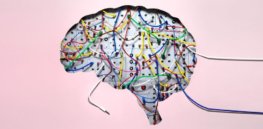
Rewiring the brain and what’s happening when we’re ‘thinking ourselves better’
A self-help skeptic is confronted with evidence — anecdotal and scientific — that we may be able to think ourselves ...

‘Risky decisions’ and why our brains make it so easy for us to gamble
A new study by a team from Johns Hopkins University appears to have identified a region of the brain that plays a ...

Understanding the brain’s record-keeping system
The brain has a temporary way to keep track of memories ...
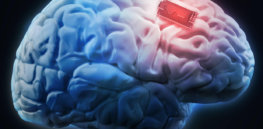
3 neural implants that could change our lives
Here are three of [DARPA’s] research programs that are showing promise in early human testing: 1) A NEURAL IMPLANT [TO] ...

Are students harmed when their teachers believe in ‘neuromyths’?
Educational neuromyths include the idea that we learn more effectively when taught via our preferred “learning style”, such as auditory ...

Soldiers of the future could be supercharged with brain upgrades
[T]he way the military fights wars is changing, and so must DARPA’s priorities. At a conference last week to celebrate DARPA’s 60th anniversary, ...

The Disordered Mind: How our brains control our emotions
The following is an excerpt of The Disordered Mind: What Unusual Brains Tell Us About Ourselves by Eric Kandel. We are all ...

Cancer advocacy: How one man and his family have coped with glioblastoma
[Adam and Whitney Hayden] waited to find out if today was the day they would learn that the cancer had ...
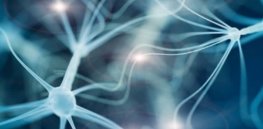
Brain implants could control epileptic seizures with chemical stimulants
People who suffer severe epileptic seizures may one day be able to control or even prevent them with an electronic ...

She’s blind, but sees movement. Woman’s condition may help us understand brain’s inner workings
Milena Canning can see steam rising from a coffee cup but not the cup. She can see her daughter’s ponytail ...
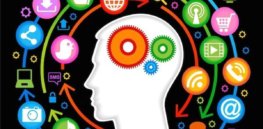
Designed for distraction: Why our brains find it difficult to focus
Laser focus leads to success, or so they say. Except it actually doesn’t. Researchers have found that rather than being ...

Mapping worm neurons to learn more about human memory
Although memories seem ethereal, scientists believe that they may be stored in the connections between neurons called synapses. In theory, ...
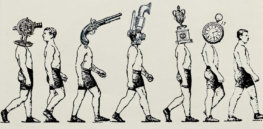
Hardwired for delusion: How our brains deceive us
[Present bias] is the tendency people have, when considering a trade-off between two future moments, to more heavily weight the ...

We talk to our dogs. Do they understand the words we use?
Dogs know what 'get the ball' means, but do they truly understand what we say? ...

Why our earliest memories are often imagined
If life is but a tapestry, then memory is the thread. But some of those threads may simply be imagined: ...

Thinking like mom: Fatherhood makes male brains more maternal
The amount of time bat-eared fox fathers spend monitoring their young is an even bigger predictor of pup survival than maternal investment ...
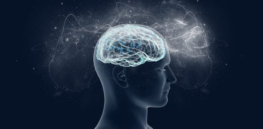
Why our brains are in the business of predicting the future
According to [the] “predictive coding” theory, at each level of a cognitive process, the brain generates models, or beliefs, about ...

When antidepressants fail: Are we looking at a new kind of depression?
Depression is one of the most frequently diagnosed mental illnesses, with an estimated 15 percent of the global adult population ...
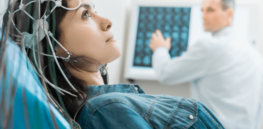
Boosting memory by combining electrical brain stimulation and learning
Low dose transcranial direct current stimulation have been the subject of much debate. Now, the technology is combined with cognitive ...
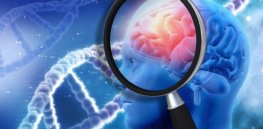
With imaging advances, brain researchers no longer rely on cadavers and freak accidents
The increased use of magnetic resonance imaging (MRI) as a research tool could lead to better understanding of a wide ...
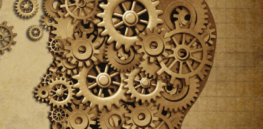
Piecing together the complex puzzle of the brain’s decision-making functions
A group of 21 neuroscientists are joining forces in an effort to better understand how different parts of the brain ...

Learning what Alzheimer’s does to the brain could lead to personalized treatments
Researchers are learning more about the causes and progression of the disease. This leads them to suggest that new treatment ...
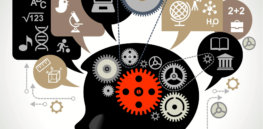
Seeing patterns that aren’t there? Understanding how the brain forms opinions — And implications for science
Humans have a natural inclination to 'order the world,' our minds imposing familiar patterns on the chaos of life. Could ...
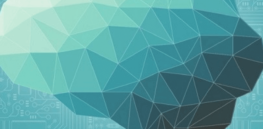
‘Brain fingerprints’: Will semantic memory identification replace fingerprints and passwords?
Semantic memory identification is an emerging ID technology based on the patterns of electrical signals that your brain puts out ...

